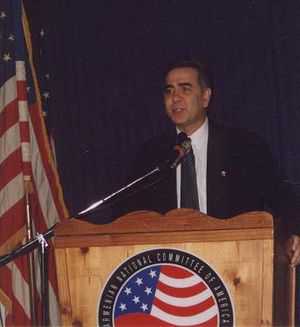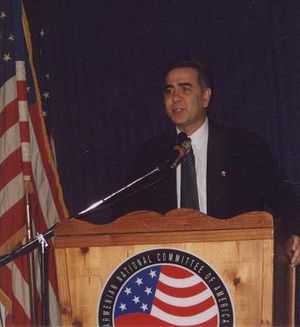Constitutional Court’s Partial Endorsement of Reform Package Divides Turkish Politics
Publication: Eurasia Daily Monitor Volume: 7 Issue: 134, July 13, 2010
By Saban Kardas
The Turkish Constitutional Court issued another controversial ruling on June 8, sparking a heated debate. Since the constitutional reform package initiated by the ruling Justice and Development Party (AKP) failed to receive the necessary votes in parliament, it was submitted to a referendum, scheduled for September 12. The reform package introduces changes to the elections law, composition of higher courts, as well as allowing for the prosecution of past coup perpetrators and expanding various freedoms (EDM, May 5). However, a plea was brought to the court, asking for the annulment of the reform package on the grounds that it violated certain principles of the constitution. Although the court partially annulled some sections, it endorsed the overall package, clearing the way for the referendum.
A major line of discussion concerns the repercussions of the ruling on Turkey’s state structure, in particular the separation of powers. According to the constitutional review system set by the 1982 constitution, prepared by the military regime at the time, the constitutional court is authorized to review parliamentary decisions only from a procedural point of view. Critics argue that by taking up this case on substantial grounds, the court exceeded its jurisdiction and curtailed parliament’s legislative powers. This debate is a reincarnation of the discussions in 2008, when the court overruled changes to the Turkish constitution, which would have ended the ban on the headscarf on university campuses. In contrast, those defending the court’s interpretation of its review powers in an expanding manner, argue that such judicial activism is necessary to ensure the survival of Turkey’s secular regime. In their view, by curbing the legislative autonomy of parliament on the basis of the “unchangeable articles of the Constitution,” the court is able to keep a lid on the excesses of the government; hence, preserving the secular characteristic of the current regime.
Some AKP members questioned the legitimacy of the court’s ruling, arguing that it overstepped its authority. Prime Minister, Recep Tayyip Erdogan, however, refrained from adopting such a position, and instead maintained that they were content with the ruling, because the final package that will be put before the Turkish public met their expectations (www.ntvmsnbc.com, July 10).
While Erdogan also vowed that they would start a campaign to mobilize the Turkish public behind the reform package, the opposition parties, announced that they would start counter campaigns against it. As the referendum approaches, only minor rightist parties declared that they would favor the proposed changes. Major opposition parties have declined to support the AKP’s drive for constitutional reform. A shared concern among the opposition is that through such reforms, especially efforts to change the composition of higher courts, the AKP once again demonstrated that it is not interested in genuine democratization. Rather, it is seeking to deepen its grip over the state institutions, and creating a type of civilian despotism. Beyond that, each opposition party has its own specific objections.
The main opposition, secularist Republican People’s Party (CHP), has argued that the AKP is intent on undermining the fundamental principles: consequently, its agenda should be objected to at any cost. It was, in fact, the CHP that pleaded to the constitutional court for the annulment of the reforms. Since the CHP appealed to the court with similar controversial requests in the past, the AKP criticizes it for conducting politics in court rooms, and avoiding the ballot box. Although the court removed some of the controversial provisions from the current package, the CHP is not fully satisfied with the ruling, and will campaign against the package in the referendum. The CHP has recently elected a new leader, Kemal Kilicdaroglu, who gained popularity after his stern criticism of the AKP’s social and economic policies and publicizing corruption accusations against the AKP. Kilicdaroglu’s calls for an ethical policy have reenergized the CHP’s standing in Turkish politics, as anti-AKP voters increasingly turn to him as their new hope. The CHP, thus, sees the referendum as an opportunity to deal a blow to the AKP, and maintain the momentum generated by Kilicdaroglu’s election (www.cnnturk.com, July 10).
The Nationalist Action Party (MHP) has been pursuing knee-jerk opposition to the AKP’s policies. As part of its policy of non-cooperation with the AKP, the MHP has opposed the reform package from the outset, saying that those policies will deepen social fragmentation. Nonetheless, the MHP expressed dissatisfaction with the court’s decision to review the reforms on substantial grounds. The MHP, in contrast, has suggested that Turkish people should be allowed to decide on the fate of the package, and it will ask its supporters to vote “no” (Anadolu Ajansi, July 10).
Many observers expect Kurdish voters to support the reform package, but the pro-Kurdish Peace and Democracy Party (BDP) would ask its supporters to boycott the referendum (Zaman, July 11). Overall, the BDP is critical of the political system and it has asserted that Turkey’s democratization depends upon rewriting the entire constitution on a civilian and pluralist platform. For the BDP, the partial amendments cannot eliminate the authoritarian legacy of the 1982 constitution and serve only the AKP’s own interests. Nonetheless, during the debates in parliament, the BDP first claimed that it would follow a constructive approach. It sought to negotiate with the AKP to include certain changes into the package, such as lowering the election threshold and changes to anti-terrorism laws (www.cnnturk.com, March 23). Faced with the AKP’s inflexibility over those demands, the BDP has expressed its opposition, and will now boycott the referendum.
Increasingly, the referendum over the constitutional amendment is turning into a mini-election, ahead of the parliamentary elections scheduled for next year. The AKP has hoped to reenergize its grassroots support through the constitutional reform package, when it was coming under pressure for failing to maintain its reformist spirit. Now, it finds itself in a situation of having mobilized a counter coalition, whose only common denominator is the opposition to the AKP. Already troubled by other domestic issues, the AKP will have a difficult time mobilizing a winning coalition in the referendum, yet its success may also help it ensure victory in parliamentary elections next year.
https://jamestown.org/program/constitutional-courts-partial-endorsement-of-reform-package-divides-turkish-politics/



 By Merdan Shakhnazarov
By Merdan Shakhnazarov

